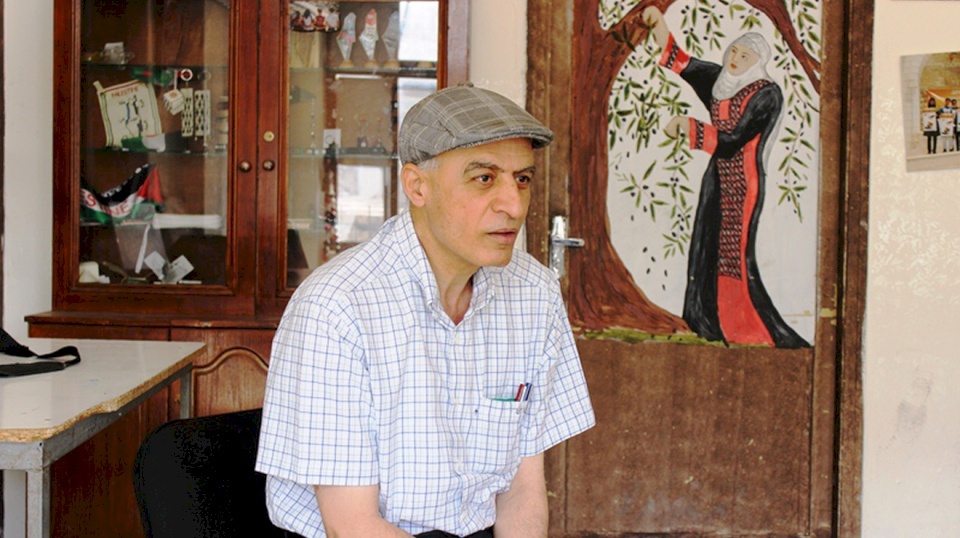
Athens Airport and Gaza Strip "In Memory of Mahmoud Darwish"
In the massacre and war of extermination, the current events, since October 7, 2023, have evoked similar events that Palestinians have experienced since 1948, with a difference in the savagery that has reached a level we have never witnessed before. It was natural for memory to bring forth the literary texts written during previous events, relying on them to reinforce the statement of novelist Elias Khoury, which he made the title of his latest book "The Ongoing Nakba". At the beginning of this year, I presented in segments texts by Mahmoud Darwish that were more present in the current massacre than others.
The poet's texts did not leave my mind afterward. Much of what I wrote included them and quotes from the novels of Ghassan Kanafani. I sometimes felt that they wrote some of what is happening now, knowing that the former passed away on August 9, 2008, and the latter was assassinated on July 8, 1972.
As I write on May 4, 2025, about Atef Abu Saif's novel "Grave No. 49", which is about the current massacre, I turned to the worlds of its multiple characters and their varying anxieties, despite all being besieged and living the same reality: siege, bombardment, rising prices, and loss.
Each individual character had its own suffering, alongside the collective suffering, and every character is seeking a solution to their problem.
The novel reminded me of Darwish's poem "Athens Airport," from which I quoted a passage in this article. In the passage, every Palestinian, after leaving Beirut, thinks about what troubles them: Where will the fighter fight? Where will his pregnant wife deliver their child? Where will the employee invest his money? And what does not concern the intellectual: My money and yours? Meanwhile, customs officers ask the arrivals: Where did you come from? Where are you heading? What are your addresses? Here, a woman from our group responds: In my bundle, my village. (Palestinian days).
I will follow in recent months various pages from Gazans with different orientations, and I will monitor many of them and rely on them for writing the diaries that I have not stopped continuing except during the numerous ceasefires.
One of the last things I read, for example, was about those who remained in the north of the Gaza Strip refusing to leave, because they were raised on the idea of staying, so they ascended.
Thus ascended, in Shuja'iyya, journalist Marwa Muslim and her brothers Mo'taz and Muntasir together, on 2/8/2025.
What does a currency trader care about the massacre, for example?
Many Gazans wrote about the commission that currency traders demand from them to provide cash liquidity.
What concerns traders first and foremost is investing their money and increasing it.
They have become skilled in methods of deception and have imposed what they want, and one of the funniest videos is one in which you hear the following:
"- Take this application that is working on the road.
- We need liquidity. What’s the commission?
- 40 percent.
- 40, go to hell. Get lost.
- 40 percent. This is my legitimate right.
Another says:
- I go with 1 percent home.
- No! We will pursue you on it. Just wait a bit.".
On August 3, 2025, Dr. Heya Freij wrote that the trader takes 52 percent commission on her salary.
And while the young man wanting to marry in Darwish's poem is looking for a room to consummate his marriage, the families of the dead in Gaza are busy searching for graves for those they lost and are also concerned with securing burial costs.
Graves have become scarce and costs have risen. A citizen spoke in a video about the burial crisis: "By God, there are no graves to bury people; there are no stones or tiles, and some martyrs have been returned to the refrigerators. We appeal to anyone to find graves. The least we can do is to bury the dead. That is the least duty." (The video is from Mariam Abu Dagga's page).
And about burial and a tombstone, Abu Saif wrote in his novel.
The hungry now in Gaza, hundreds of thousands, talk only about bread and getting flour and the struggle over it.
And what about the fighters we sometimes saw in fleeting moments of their courage and bravery in video clips and heard some of their phrases?
In my diaries, I wrote about the absent text of Gaza that we have not written. This text has been absent from our writings because those who fight are still fighting and have not gone out to Athens Airport to ask:
- Where do we fight?
And what if we looked at the pages of some of the people of the West Bank or Palestine in 1948?
One of my students, who is Isbah Al-Haj Muhammad, has been a government teacher for about 15 years now but does not receive his salary on time; even if he receives it, it is not in full. He often writes about salaries, payment dates, their percentages, and the debts teachers owe to the government. Meanwhile, what concerns our people in the 1948 areas is the spread of crime, with increasing numbers of victims among the elderly, young men, women, and…
And it is a tough situation, O Layla, and may Allah have mercy on Mahmoud Darwish, whose death anniversary is in these days, knowing that he was, while I write, the most present.

Huckabee's Statements Reveal the Falsehood of Trump's Peace and Reinforce Religious Confli...

Licensed Occupation by Law

Whoever Does Not Plant Hope, Plants Departure...

Between "Here is Jerusalem" and "Here is Gaza" ... The Voice of a Nation and the Steadfast...

While some count the boos, Palestinians count their martyrs.. Paradoxes of the internation...

When the Palestinian Issue is Reduced to Gaza Management

Legally Licensed Occupation

